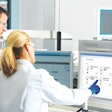
A simple-to-use method reveals bacterial reaction to antibiotics in only five minutes.
The 5PSeq method, described Monday in the journal Nature Microbiology, is based on sequencing the messenger RNA (mRNA) that the bacteria break down as they synthesize proteins.
Since treatment for very ill patients with bacterial infections often needs to be given promptly to avoid serious health consequences, it is important that doctors quickly find the right antibiotic for the patient. However, current methods of testing antibiotic resistance can take hours or even days. Because of this, broad-spectrum antibiotics are often prescribed, which increases the risk of antibiotic resistance.
The researchers sought to reduce unnecessary antibiotic use by finding a way to quickly measure how bacteria are affected by different environmental factors, including antibiotic treatments.
They investigated mRNA degradation intermediates in isolated species and complex microbiomes using the 5PSeq method. They tested the method on a total of 96 bacterial species from different phyla in complex clinical samples, including fecal, gut, and vaginal samples, as well as compost samples. Within minutes, they were able to assess whether the bacteria were responding to antibiotic treatment; the effect was most significant after about 30 minutes.
Using metadegradome sequencing — parallel analysis of RNA ends — the researchers characterized 5′P mRNA decay intermediates in all 96 species, including Bacillus subtilis, Escherichia coli, Synechocystis spp., and Prevotella copri. They found co-translational mRNA degradation to be widespread among bacteria, and produced a degradome atlas for the 96 species to enable further analysis of RNA degradation mechanisms in bacteria.
Apart from measuring antibiotic resistance, the method can be used to help researchers understand how bacteria handle various environmental stressors, and how they interact with one another and with their hosts. The researchers will continue to study complex intestinal samples in order to better understand how bacterial communities interact in the gut and impact human health.
Researchers started up the 3N Bio company in the KI Innovations incubator to develop the method and create a rapid molecular test for clinical use. They recently received financing from the Swedish Research Council to demonstrate proof of concept for such a test in collaboration with Karolinska University Hospital.
“We demonstrate that metadegradome sequencing provides fast, species-specific posttranscriptional characterization of responses to drug or environmental perturbations,” the researchers wrote. “Our work paves the way for the application of metadegradome sequencing to investigation of posttranscriptional regulation in unculturable species and complex microbial communities.”



















